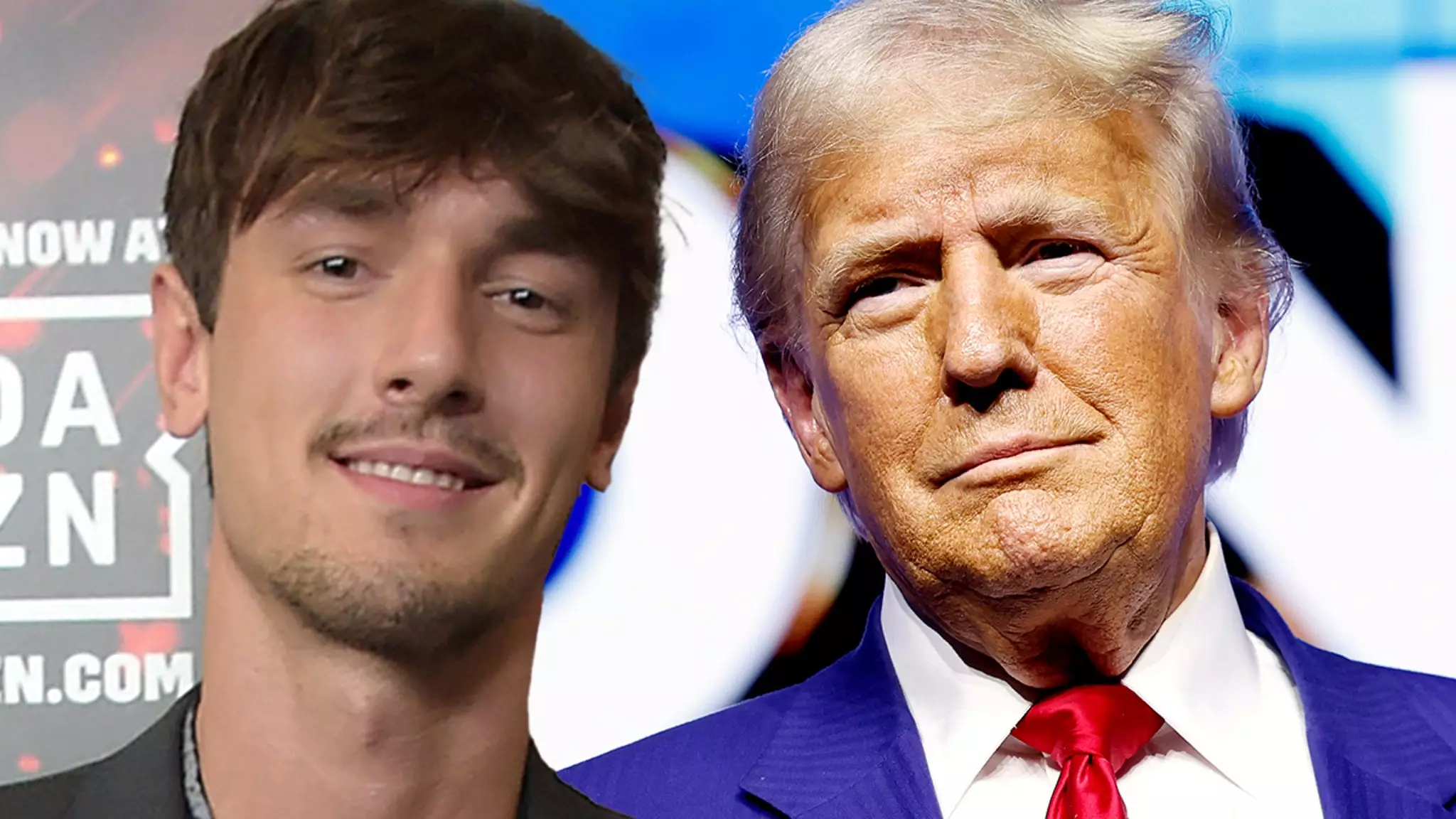In the world of social media influencers, Bryce Hall stands out not just for his massive followers—nearly 24 million on TikTok—but also for his unapologetic support of Donald Trump during the presidential campaign. Hall has transformed his presence from simple entertainment to a platform for political engagement. This unusual alliance raises pertinent questions about the intersection of celebrity culture and politics, especially as Trump prepares for his role in the Oval Office.
Bryce Hall’s ties to the Trump camp go beyond casual support. He has closely collaborated with Blake Wynn, whose uncle, Steve Wynn, is a well-known figure in the casino and hospitality industry. This connection has given Hall direct access to Trump’s circle, making him a notable intermediary between the president-elect and younger demographics who resonate with Hall’s social media prowess.
The spark for collaboration ignited during a chance encounter at a campaign rally in Las Vegas, where Hall interacted with Trump backstage. Their conversation included a rather humorous proposition from Trump: a potential video collaboration that could propel Hall’s following even higher while simultaneously keeping Trump in the spotlight. This desire to create viral content has become a necessary strategy for political figures in the digital age where conventional campaigning techniques are no longer sufficient.
Hall’s enthusiasm for this collaboration reveals a deep understanding of contemporary media dynamics. While Trump has made strides in building his brand on social media, Hall’s platform could bridge the gap to a younger audience, often dubbed Generation Z. By working together, these two figures could cultivate a unique blend of entertainment and political discourse, appealing to a demographic that plays a crucial role in shaping future electoral outcomes.
Despite the benefits that such a partnership could bring, Hall acknowledges the risks involved. He labels his advocacy for Trump as “the biggest gamble” of his career. Aligning himself with a polarizing figure could alienate potential followers who do not share his political views. Yet, Hall believes that supporting Trump aligns with a broader vision of fostering positive change in society. This sentiment illustrates the complexities that many influencers face when navigating their personal beliefs within the highly charged political climate.
Furthermore, Hall’s early awareness of Trump’s electoral success on the night of the victory—alerted by Wynn’s call from Mar-a-Lago—highlights his insider status. It also emphasizes the potential urgency influencers have to adapt their messaging in real-time, engaging audiences as events unfold. The power of collaboration is becoming increasingly clear; however, the consequences of aligning with any political entity can be far-reaching.
As Donald Trump gears up to take office, the dialogue surrounding influencer politics will undoubtedly become more pronounced. Bryce Hall appears poised to ride this wave, but success in this arena will require finesse and an understanding that digital engagement must balance entertainment with genuine political discourse. As both a celebrity and a public figure, Hall stands at a pivotal crossroads, one that could redefine how politicians engage with younger voters and how influencers leverage their platforms for advocacy.
In a time where online presence can dictate public perception, Hall’s approach may serve as a model for future collaborations between influencers and political figures. If executed thoughtfully, this partnership could reshape the narrative surrounding political engagement, ultimately bridging generational divides in the process.

